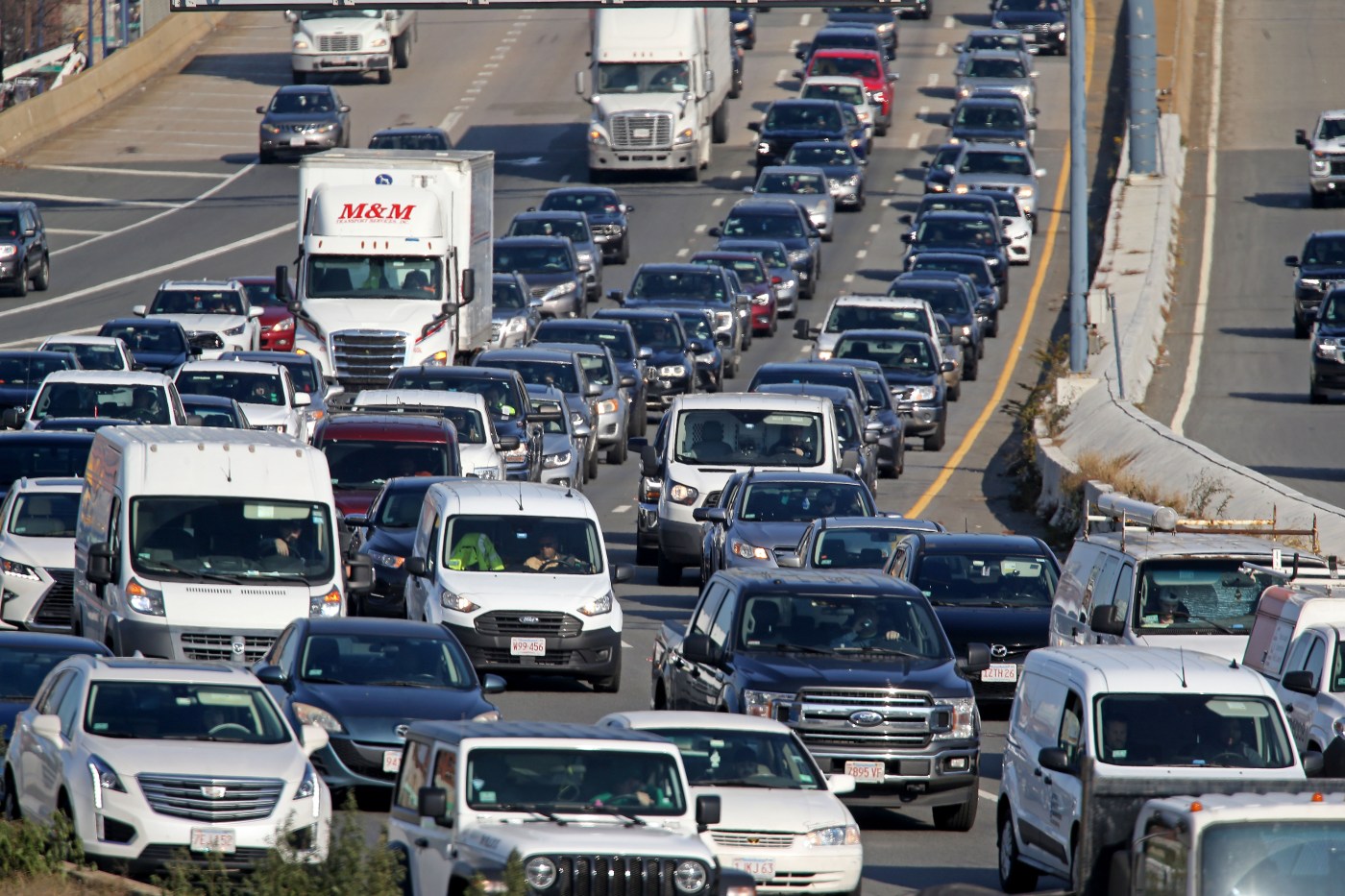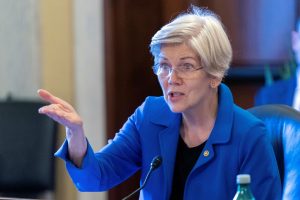
Congestion pricing possibly down the road in Boston
While a city councilor’s proposal to consider bringing congestion pricing to Boston has proven to be politically polarizing, the region’s business leader says it has to be under consideration given the state of traffic and public transit funding challenges.
Jim Rooney, Greater Boston Chamber of Commerce president and CEO, said congestion pricing, or an additional tolling tax for drivers, is among the strategies the governor’s new transportation funding task force, of which he is a member, will be considering in a 12-month study set to kick off shortly.
When it comes to funding transportation, Rooney said it’s not difficult to come up with ways to raise money. Rather, the challenge is centered around the “political feasibility” of those strategies, he told the Herald.
“Certain people will like congestion pricing; I’m sure that environmental advocates, for example, to the extent that it reduces emissions and traffic, will like congestion pricing,” Rooney said. “Others may feel like it’s not a good idea.”
“I can’t think of a proposal that is not going to be without some measure of controversy, but we’re going to have to make some hard decisions,” he added.
Congestion pricing has been kicked around at the state level for years. A bill that would have created a mobility pricing commission to look into such a tax was vetoed a number of times, including by former Gov. Charlie Baker in the summer of 2022, when he cited equity concerns.
Gov. Maura Healey has been more receptive to the idea. She created the transportation funding task force last month, an entity that will look into the mobility pricing strategies the vetoed legislation would have considered.
The idea has also regained traction due to a hearing order brought Wednesday before the Boston City Council, which will debate the impacts of adding a congestion fee to drivers for Hub access. Rooney said, however, that the policy would take at least five years to implement, if it proves to be politically palatable.
“Congestion pricing is actually a form of tolling so we would need to embrace more broad-based tolling,” Rooney said. “What we have today is just the Mass Pike and tunnels and bridges, so that’s the only place technically we could implement congestion pricing, under today’s structure.”
Related Articles
Boston Mayor Michelle Wu says community centers shouldn’t be used as migrant shelters
Boston City Hall downplays projected $1B budget shortfall from empty office buildings
Boston’s city payroll jumps 14% in $100,000-plus earners in one year
Empty office buildings have Boston staring down $1B budget shortfall
Boston City Council punts congestion pricing discussion to future hearing
If the commonwealth was to “embrace” congestion pricing either in or out of Boston, like what New York City is planning to implement, or different parts of the state, “that would mean implementing the same technology and system we have for tolling and then use congestion pricing to help manage the flow,” Rooney said.
Tolling fees could fluctuate during different times of the day, he said, referring to a strategy that tries to reduce congestion by lowering prices at off-peak hours.
“That takes time and by the way there are state and federal regulations and laws that need to be dealt with before you can even consider doing it,” Rooney said. “You can’t toll a federal interstate without the feds getting involved.”
In New York City, which is moving forward with plans to implement the country’s first zone-based congestion pricing model, it’s been 14 years since the idea was formally proposed by then-Mayor Michael Bloomberg and five years since it was approved by the state Legislature.
The MTA, which plans to charge drivers once per day depending on the size of the vehicle — $15 for most drivers with a higher fee for truckers and motorcyclists paying less — will vote on the final plan in March. The tolling system construction to support that plan has cost roughly $550 million so far, at 70% completion.
Rooney also pointed to a similar effort in San Francisco, which was studying a plan to charge drivers entering a downtown zone $6.50 with discounts based on income until it was put on hold in 2022.
Other U.S. cities have experimented with mobility pricing. Seattle, for example, saw reduced congestion when it increased tolls during peak commuting hours and discounted prices during off-peak hours, according to the U.S. Department of Transportation.
The type of zone-based congestion pricing New York City is trying to implement, and that the Boston City Council seemingly seems poised to consider, has been implemented abroad in London, Stockholm and Singapore, but there are no operating examples in the U.S., the department said.
Rooney said taxing drivers by miles traveled in their personal vehicle — which has been tested in Minnesota and Oregon — is another option that the task force will consider to reduce traffic, and raise funding for the MBTA, which is staring down a $567 million budget gap in fiscal year 2025, along with roads and bridges.
Whether congestion pricing is fair will be considered by the task force, Rooney said, acknowledging that it may not be fair to charge people who commute to a part of the city they can’t afford to live in.
Hitting drivers with higher taxes to get more people onto public transit at a time when the T is not reliable will also be considered as a measure of fairness, he said.
“At the end of the day, doing nothing is not an option,” Rooney said. “There’s a bunch of things that have positive and negative aspects to them, but doing nothing is not an option, particularly when the gas tax is going away.”
Material from Herald wire services contributed to this report.


